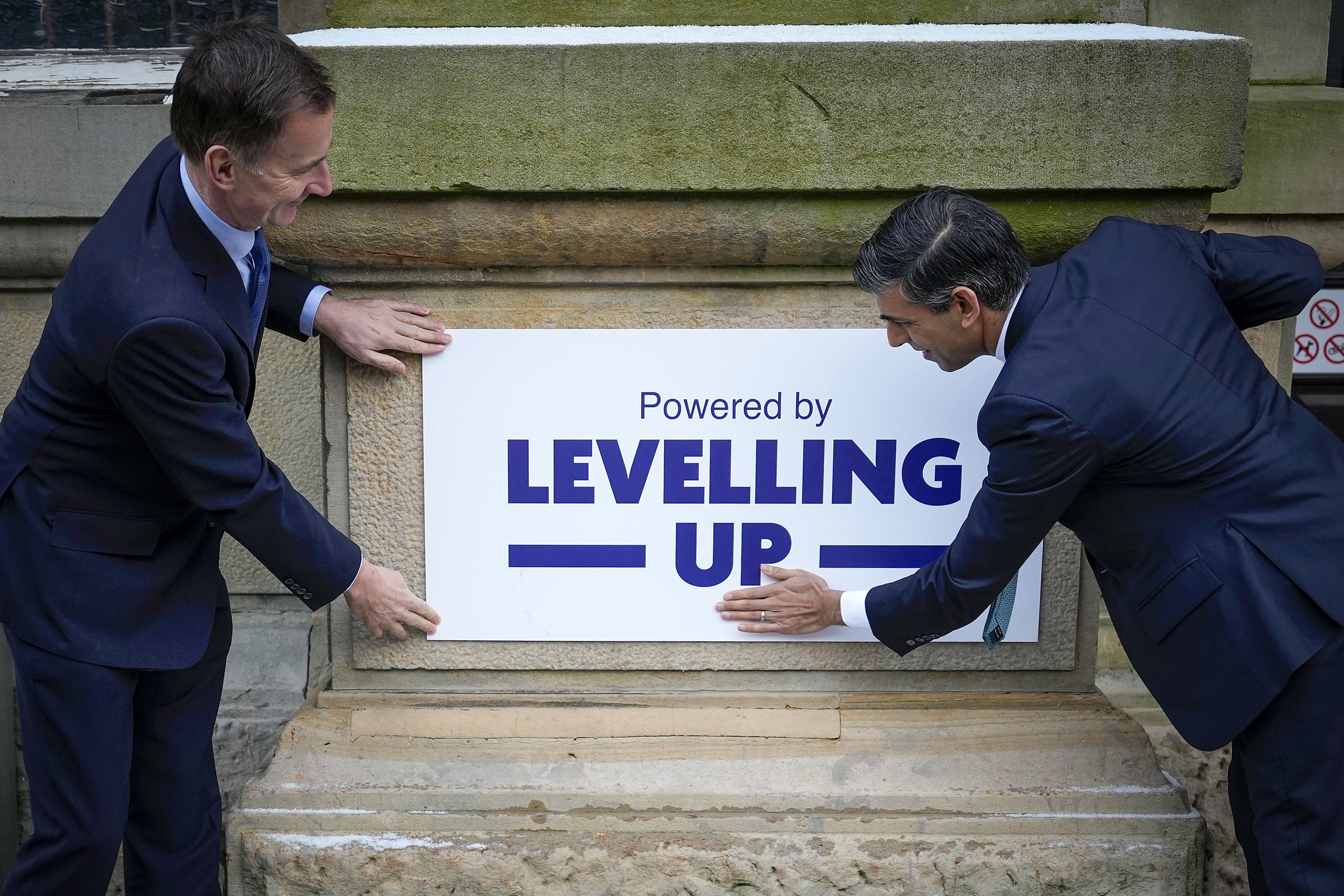Levelling up projects unlikely to be delivered on time, says watchdog
The National Audit Office blamed inflation, skills shortages and delayed decision-making for the slippage.

Your support helps us to tell the story
From reproductive rights to climate change to Big Tech, The Independent is on the ground when the story is developing. Whether it's investigating the financials of Elon Musk's pro-Trump PAC or producing our latest documentary, 'The A Word', which shines a light on the American women fighting for reproductive rights, we know how important it is to parse out the facts from the messaging.
At such a critical moment in US history, we need reporters on the ground. Your donation allows us to keep sending journalists to speak to both sides of the story.
The Independent is trusted by Americans across the entire political spectrum. And unlike many other quality news outlets, we choose not to lock Americans out of our reporting and analysis with paywalls. We believe quality journalism should be available to everyone, paid for by those who can afford it.
Your support makes all the difference.Projects funded by the Government’s major levelling up grants are behind schedule and unlikely to be finished by their original deadlines, the National Audit Office (NAO) has found.
A review of three funds providing a total of £9.5 billion found spiralling costs, skills shortages and delayed decision-making mean local authorities are struggling to deliver projects on time.
Experts described the report as “damning”, with one saying it provides “a litany of missed deadlines, moving goalposts and dysfunction”.
The review, published on Friday, looked at projects backed by the Towns Fund, the Levelling Up Fund and the UK Shared Prosperity Fund, all three of which are intended to support the “levelling up” agenda that was a major part of the 2019 Conservative manifesto.
The Government’s lack of trust in local authorities resulted in a deeply muddled approach to levelling up
The first two funds were intended to back “shovel ready” projects that could be delivered swiftly, but the NAO found several projects had either been suspended or not even started by March this year.
Of the 1,300 projects supported by the two funds, 64 had been completed but 76 were still yet to begin.
The NAO concluded that the original deadlines set by the Department for Levelling Up, Housing and Communities (DLUHC) were “unlikely to be met”.
The watchdog found 50% of the main construction contracts for Levelling Up Fund projects due to be completed by March 2024 had still not been signed a year before the deadline.
It also found that the bulk of the money allocated to the projects had still not been spent.
NAO analysis found only 14% of the £1.6 billion allocated in the first round of the Levelling Up Fund in October 2021 had been spent by March this year, while 13% of the money announced for “Town Deals” in 2021 had been spent.
A DLUHC spokesman said these figures are out of date and another £1.5 billion has been spent since March, which means around 28% of the total allocated under the three projects has now been spent.
Zoe Billingham, director of the think tank IPPR North, said: “This report includes a litany of missed deadlines, moving goalposts and dysfunction in the way levelling up funds have been allocated to councils as part of the Government’s flagship programme.”
David Pendlebury, of the New Economics Foundation, said: “This report is damning and shows everything that’s wrong with the way Whitehall works – or refuses to work – with communities.
“The Government’s lack of trust in local authorities resulted in a deeply muddled approach to levelling up, in which cash-strapped councils were tempted with the promise of much-needed investment, only to have their hopes dashed.”
The NAO blamed a range of factors for the delays, including the rampant inflation of the past two years, skills shortages in the construction sector, and delays in decision-making by DLUHC, with an average delay of 10 months across the projects.
Gareth Davies, head of the NAO, said: “DLUHC is in a better position to understand the benefits these funds deliver following significant improvements in its approach to evaluation. But the department and local authorities will need to work together to unblock projects which are delayed or have not started and set realistic expectations for delivery.
“It is important that DLUHC shares the insights from its evaluation work with local decision-makers to help them achieve better value for money and reduce regional inequalities by improving the places people live.”
A DLUHC spokesman said: “The figures from this report are out of date. In the eight months since March, DLUHC has paid over £1.5 billion of further funding out to local authorities. We continue to work closely with local authorities to support their delivery of their vital projects.
“We have committed £13 billion to levelling up, supporting projects to improve everyday life for people across the UK, regenerating town centres and high streets, local transport and cultural and heritage assets.
“Major regeneration projects take time to deliver, but a number of projects have completed. This includes the redevelopment of the Farnworth Leisure Centre in Bolton, delivered as part of a £13.3 million commitment to Bolton Council through the Future High Streets Fund. Thanks to the Towns Fund also, the Ingenium Centre in Darlington and a digi-tech factory in Norwich have both opened their doors.”